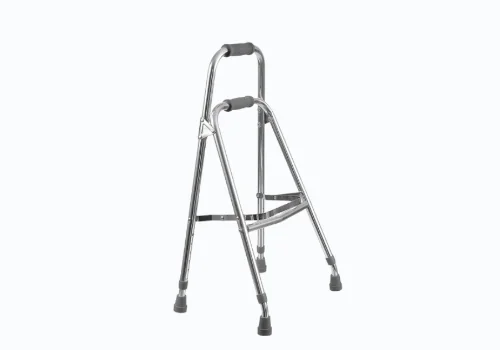What is a Hemi Walker and How to use?

Looking for what is a hemi walker and how to use? Let’s explore the world of Hemi walkers today and see how these amazing tools may help those who have difficulty with their everyday movements.
The Hemi walker might be the game-changer you’ve been waiting for, whether you’re helping a loved one achieve greater independence, managing a medical condition, or recovering from an injury.
In This Article
- What is a Hemi Walker
- What is a Hemi Walker used for
- How to Use a Hemi Walker
- Hemi Walker for Stroke Patients
- What does a Hemi walker look like
What is a Hemi walker?

A hemi walker is a type of mobility device designed for older people or those with specific impairments who have trouble using one arm, wrist, or shoulder because of anything like a fracture, stroke, or other problems.
It is beneficial for those who are unable to hold a regular walker with both hands due to weakness on one side of their body. With its broader base for support and stability, a hemi walker is designed to be used one-handed, unlike a traditional walker.
What is a Hemi Walker used for?
A Hemi walker is an intelligent mobility device designed for those who need additional assistance on one side of their body. Think of it as the helper you never realized you needed.
The Hemi walker is a trustworthy friend that provides stability and confidence, whether you’re healing from an accident or managing a disease that impairs your balance and coordination.
It all comes down to giving you the confidence to walk freely and take on everyday challenges, one step at a time!
What Separates It from Other Walkers?
Hemi walkers are made to be used with one hand on the handlebar while the affected side of the body is supported by the frame, in contrast to the usual walkers that surround the person.
Its unique shape makes it easier to use and operate, which makes it an excellent option for people who can only support a portion of their body weight.
How to Use a Hemi Walker
Hemi walker how to use Don’t worry. Here, we have described how Using a hemi walker correctly is vital for safety and effectiveness:
1. Height Adjustment
Adjust the height of the hemi walker so that the handle is at the same level as the user’s wrist when standing tall with their arm by their side.
2. Proper Technique
The user should hold the walker with the affected side and move with their effective leg, advancing the walker and the effective leg together before moving the stronger side forward.
3. Stability and Support
The hemi walker provides a four-legged support base, which is more stable than a cane and can be used both at home and outside.
4. Consultation with Professionals
It’s recommended to consult with a physical or occupational therapist to determine if a hemi walker is appropriate and to learn the correct way to use it.
Hemi Walker for Stroke Patients
If you or someone you know has experienced a stroke, think of the Hemi walker as your reliable friend. This helpful support, made especially for patients with stroke, offers much-needed assistance to people who are experiencing unilateral weakness or difficulties with balance.
The Hemi walker is a game-changer because of its distinctive design and simple-to-use features, which help you recover independence and confidence as you work to restore your mobility.
Thus, see this as a chance to go on toward a more hopeful and capable future—the Hemi Walker is here to support you every step of the way!
What does a Hemi walker look like
Like a reliable friend, the Hemi walker is always willing to help you on your mobility journey. It’s an innovative device with a distinctive design that looks like a cross between a cane and a regular walker.
The magic occurs on one side when a sturdy frame supports an arm in need of a little more love. Your go-to grip for stability, the handlebar gives you the impression that you are walking with a trustworthy friend.
It’s more than simply a mobility support; it’s a stylish and helpful friend that will help you achieve more freedom.
Conclusion
For those who have a unilateral weakness or impairment, the hemi walker is a useful mobility tool. It provides an equilibrium between the ease of use of a walking stick and the stability of a walker.
A hemi walker may significantly increase a person’s mobility and independence when chosen and used correctly. To be sure it’s the best decision and to learn how to use it safely and efficiently, remember to speak with healthcare specialists.





